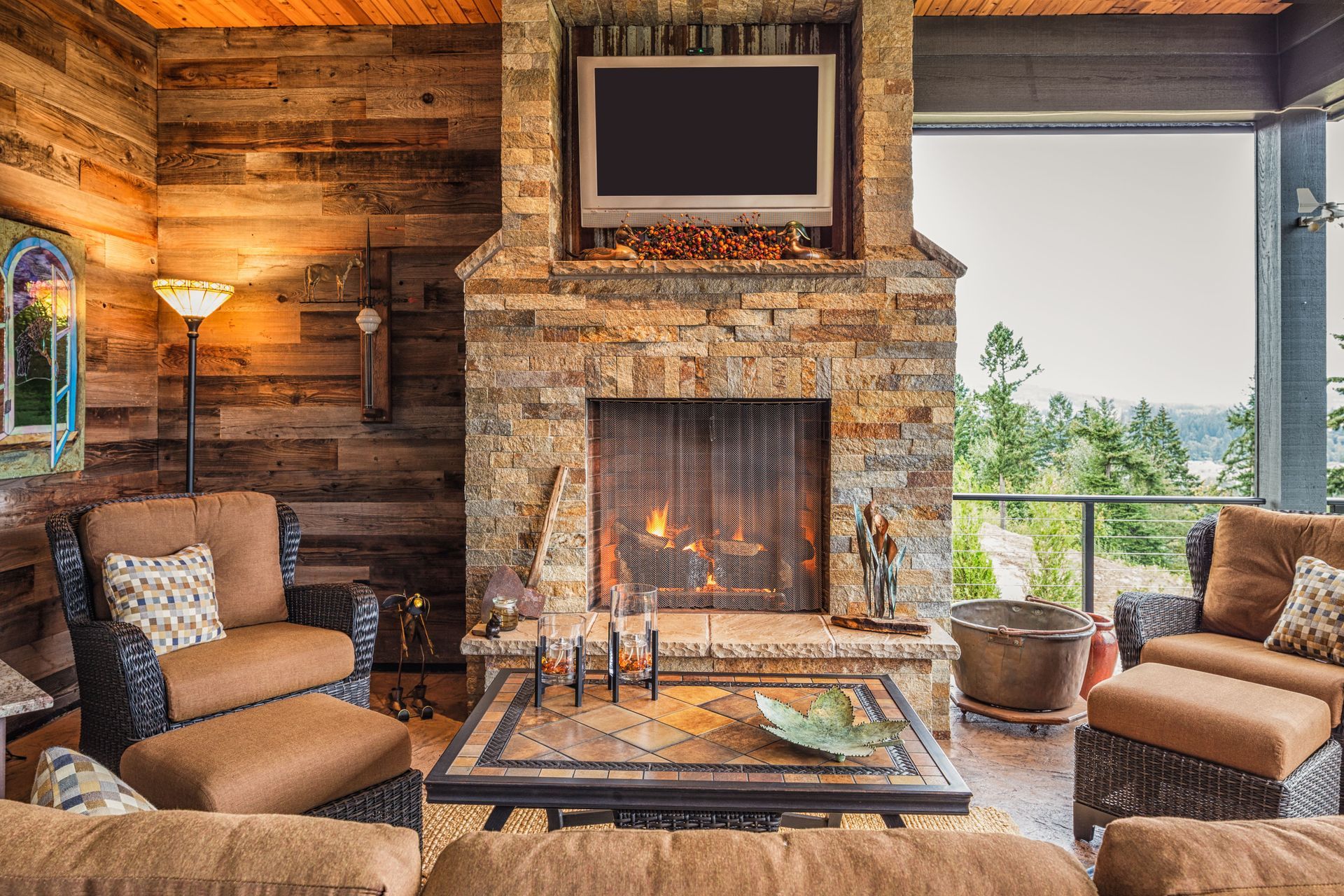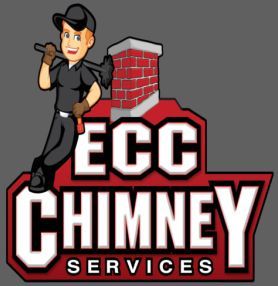The Importance of Regular Chimney Sweep Services for Home Safety
Regular chimney maintenance is essential for ensuring the safety and efficiency of your fireplace or heating stove. Without proper care, risks such as fire hazards, structural damage, and health issues could threaten your home and loved ones. Routine chimney sweeps help safeguard your home by reducing these dangers and enhancing the longevity of your chimney. This article delves into the key reasons why regular chimney sweeps are crucial, the risks of neglecting maintenance, and how professional services ensure your home remains safe.
The Risks of Neglecting Chimney Maintenance
Creosote Buildup and Its Dangers
Creosote, a highly flammable byproduct of burning wood, can accumulate in your chimney, creating a severe fire risk. According to the Chimney Safety Institute of America (CSIA), you should be sweeping when sooty deposits reach 1/8" thick or sooner if any glazing is visible. Unchecked creosote buildup can cause chimney fires, leading to significant damage. Regular sweeps prevent this danger and extend the life of your chimney.
An unchecked accumulation of creosote can lead to extensive damage not only to your chimney but also to your entire home. The intense heat generated by a chimney fire can cause cracking and structural damage to the chimney liner and even ignite the surrounding combustible materials. Regular chimney sweeps remove the layers of creosote before they pose a risk, thereby safeguarding your home's integrity and your family's safety.
Fire Hazards Linked to Dirty Chimneys
Soot and debris within a dirty chimney can divert heat to areas that aren’t designed to handle it, increasing the risk of fires. Additionally, animal nests can block the chimney, further heightening fire risks. Regular sweeps remove obstructions and debris, reducing the likelihood of house fires. The National Fire Protection Association (NFPA) reports that many home fires originate from chimneys with blockages. Regular cleaning helps avoid these potential disasters.
Besides creosote, nests from birds, rodents, or other animals can block the chimney, further increasing fire risks. These obstructions can cause heat and combustible materials to collect, leading to unintended fires. Regular chimney sweeps remove these flammable materials, reducing chimney fire incidents. Awareness and action are key to preventing a crisis. Scheduling a professional chimney sweep is a proactive step in fire prevention that ensures your home is constantly safeguarded.
Carbon Monoxide Risks
Neglected chimneys can cause dangerous carbon monoxide buildup, a colorless and odorless gas that can be deadly. Obstructions prevent proper ventilation, increasing the risk of poisoning. Routine sweeps ensure that pathways for gas expulsion remain clear, protecting against hazardous buildups. Installing carbon monoxide detectors is also crucial in providing an extra layer of safety.
Routine inspections, as recommended by the CSIA, can't be overstated for ensuring chimneys are functioning efficiently. Should any tell-tale signs of poor ventilation, like smoke backdrafts or sluggish fire performance, appear, it might indicate compromised air circulation due to blockages. A scheduled sweep can address malfunctions, restoring proper air exchange and disposition. Conversely, delaying such checks could lead not just to discomfort but also to health emergencies from carbon monoxide poisoning.
Structural Damage Over Time
Chimney neglect can lead to severe structural damage. Spalling bricks, cracked liners, and weakened mortar joints are all signs of wear that develop over time without regular maintenance. Exposure to intense heat and moisture breaks down chimney materials. Regular sweeps help identify early signs of wear, preventing costly repairs and preserving your chimney’s structural integrity.
Chimneys require robust liners to insulate and manage heat dispersal safely, preventing structural degradation. Creosote accumulation and moisture from rain disintegrate masonry materials, weakening the strength of the chimney. Early intervention, such as that provided by professional sweeps, helps diagnose such issues, saving considerable expense from future renovations or rebuilds.
Impact on Indoor Air Quality
A neglected chimney can negatively affect indoor air quality. Blockages can force smoke and harmful particulates into your home, degrading air quality and affecting your health. Regular maintenance ensures proper airflow, keeping your home’s air clean and healthy. Smoke buildup in your living spaces not only damages the air but can also stain walls, furniture, and upholstery.
Proper airflow management by functioning chimneys prevents back-venting of smoke, otherwise impacting respiratory health. Regular chimney sweeps clear deposited residues, negate blockages, and facilitate proper exhaust, thereby improving air quality. Home safety depends substantially on maintaining healthy living spaces, and a clean chimney serves as a frontline defender against air quality hazards. The commitment to a clean home environment starts with addressing airborne risks at their source, achieved effectively through regular maintenance routines.
The Process of a Professional Chimney Sweep
Initial Inspection Procedures
A professional chimney sweep begins with an inspection to evaluate the chimney’s condition, identifying visible damage, blockages, and structural issues. Technicians may use cameras to check hard-to-reach areas, ensuring a thorough assessment. Early detection of issues allows for targeted cleaning and repairs.
Timely inspections, as recommended by the CSIA, underscore the importance of regular assessments. Masonry fireplaces, for example, need sweeping based on creosote levels. Prioritizing these examinations ensures adherence to industry standards, significantly reducing potential hazards. As part of this process, any guidance or suggestions provided by inspectors play a pivotal role in further educating homeowners on maintaining a safe, functional chimney.
Addressing Obstructions and Animal Nests
Animals often build nests in chimneys, blocking airflow and posing fire risks. Professional sweeps use specialized tools to safely remove nests and other obstructions, ensuring your chimney functions correctly and safely. This process not only removes immediate threats but also promotes greater efficiency in chimney operations. With all passageways clear, smoke and toxins can escape as designed, upholding the chimney's fundamental role in ensuring safe heat dispensation.
Assessing Chimney Structural Integrity
An essential part of professional chimney sweeping is assessing the structural integrity of chimneys. Experts check for signs of wear, such as cracks in liners and issues with masonry. They may use cameras or moisture meters to capture hard-to-see issues, allowing for early detection of structural vulnerabilities. Timely repairs can prevent further damage and improve the safety and efficiency of your chimney.
Post-Cleaning Safety Recommendations
After a chimney sweep, professionals offer safety recommendations for maintaining your chimney’s performance. These may include advice on scheduling future sweeps, checking for signs of wear, and keeping the chimney clear of debris. They may also suggest adding spark arrestors or chimney caps to prevent debris buildup and animal nesting.
Benefits of Regular Chimney Sweep Services
Enhanced Home Safety
Regular chimney sweep services reduce fire hazards by removing creosote and other debris that can cause chimney fires. Professional sweeps also help prevent carbon monoxide buildup by ensuring that smoke and gases are properly vented outside. By keeping your chimney clean and free of obstructions, you enhance your home’s safety and protect your family.
Prolonged Chimney Lifespan
Consistent chimney maintenance prolongs the lifespan of your chimney by preventing damage from creosote, moisture, and wear. Removing corrosive residues helps prevent premature aging of the chimney’s components, saving you money on repairs and replacements in the long run.
Improved Heating Efficiency
A clean chimney improves the efficiency of your heating system by allowing smoke and gases to vent properly. This ensures that heat is distributed effectively throughout your home, reducing energy costs and improving comfort.
Regular chimney sweep services are vital for maintaining your home's safety, efficiency, and overall health. By removing creosote, debris, and animal nests, professional sweeps reduce fire and carbon monoxide risks, prevent structural damage, and improve air quality. These services also extend the lifespan of your chimney, improve heating efficiency, and contribute to higher home value. Prioritize regular chimney maintenance and invest in your home's safety and longevity today. Looking for chimney sweep services? ECC Chimney Service can help.



Share On: